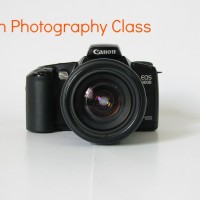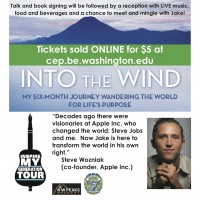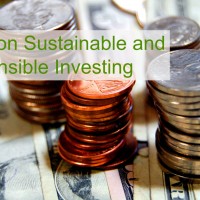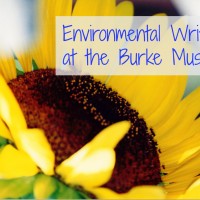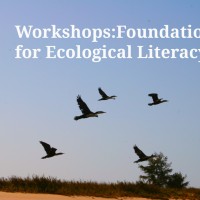Education for sustainability is “learning that links knowledge, inquiry, and action to help students build a healthy future for their communities and the planet.” We will explore the history and opportunity for this field in EDUC401K: Education for Sustainability, a 2-credit seminar through the Pipeline Project. Through volunteer placements in local schools and environmental community organizations, we will analyze the most effective ways for educators to teach the importance of sustainability to the K-12 audience and inspire youth to become active stewards of the earth. The seminar meets Wednesdays 3:00-4:20.
Teach for America

TEACH FOR AMERICA
Fourth Application Deadline: Friday, January 24
Learn how to apply and review the application timeline here.
Start your application here!
Online Application Webinars over winter break
Option 1 – Thursday, December 19 at 10:00 AM
Option 2 – Thursday, January 2 at 1:00 PM
Register here and mark your calendars!
Teach For America is developing a movement of leaders who will help drive change at every level of our education system toward the goal of closing the opportunity gap in America. These leaders start their paths as corps members who teach for two years in urban and rural high-need communities and help students make the academic progress that expands their opportunities. Deeply affected by their teaching experience, our alumni continue to advocate for students and build lasting change in many different roles and fields.
The Basics and Benefits:
- · All academic majors and backgrounds accepted
- · Regional placement is not random; applicants preference location in our 48 regions
- · All grade levels (preK-12) and subjects including ELL and SpEd
- · Salary ranging from $25,500-$51,000 a year with health insurance and retirement benefits
- · Possible Americorps Education Award of $11,100 and loan deferment/forbearance
- · Option to earn your certification and/or Masters in Education/teaching
- · Graduate school and employer partnerships for alum to continue their leadership and impact
For additional information, explore our website and youtube channel or contact Katherine Kleitsch at katherine.kleitsch@teachforamerica.org.
*job* Center Director for Seward Park Audobon Center
*job* Center Director for Seward Park Audobon Center
The Center Director for the Seward Park Audubon Center will lead Audubon Washington’s flagship urban science and nature education center, ensuring that Center programs teach people about their connections to birds and nature, both locally and throughout the Pacific Flyway, and what actions they can take to conserve them. The Center Director will help bring bird-friendly principles to the Seattle community, as part of National Audubon’s Strategic Plan for bird conservation.
UW is offering Certificate Programs in several topics that UW undergraduates can take as part of their normal credit load this summer. These Certificates consist of two to four courses and will give a good foundation in the various subjects listed below. The Summer Certificate in Business Essentials may be of special interest to Program on the Environment students because it provides:
· Opportunity to cover the major business pillars of knowledge in one summer
· Integrated curriculum with capstone business plan project, unique among UW business courses
· Ten, 6 of which are Individual & Society Area of Knowledge (I&S)
· Interaction with students from diverse perspectives since it is open to any major (except business majors)
· Tuesday/Thursday schedule which fits well with other MWF courses
· Access to industry professionals who now have adjunct or lecturer appointments with Foster School of Business
For more information, visit website or come to information meeting Thursday, June 6, Mary Gates Hall, Room 258, 3;30 to 5:00 pm and meet the instructors and program managers for all programs.
Urban Photography–URBDP 489/598
Summer Quarter 2013
MW 12:40-2:10 (3 Credits, Full Term)
Class Website: http://courses.washington.edu/urbphoto/
Instructor
Hossein Estiri
Course Description
This course is intended to deepen the understanding of urban spaces, and to enhance methodological skills in capturing different aspects of urban scenes. Photography will be used by students to focus on topics and details related to everyday life in urban spaces according to their own interests. Toward this end, the course will build upon two parallel paths encompassing:
1) Subjects from urban spaces; and
2) Topics from photography techniques.
Urban spaces subjects will be: conscious/unconscious spaces, space users (people/non-human animals), static/dynamic spaces, urban landscape and activities in space, urban form and architecture, urbanscape at night.
Students will gain hands on experience in expressing urban spaces through photography and put together a final portfolio.
Topics in photography will be discussed in 4 categories of color, motion, light, and photography for practitioners.
This course will follow a non-traditional class structure; limited lectures will be given and the class will progress through group discussions on the subjects/topics using the photos taken by students or from elsewhere.
A minimum number of three field trips are expected to Seattle Downtown for photography and space discussions and practices.
**Please note that this class is a elective and wont count for major requirements.
[volunteer]: Polliwog Preschool @ Mercer Slough Environmental Education Center



At Polliwog Preschool, held at the Mercer Slough Environmental Education Center in Bellevue, we focus on developing the whole child – socially, emotionally, mentally and physically – while initiating them into a lifelong, meaningful relationship with the natural world. The program is play-based and student-driven with stations to choose from, discovery exploration times and specific activities that relate to a seasonal theme each week. Activities are designed to address each child’s developmental needs while encouraging curiosity, fostering love of nature and developing the whole child.
The Polliwog Preschool program at the Mercer Slough Environmental Education Center in Bellevue is looking for volunteers. This is not only a great opportunity for any PoE student looking to get experience with environmental education, but is also a way to connect with PoE alumna Jackie Wilson.
We would be happy to have volunteers for 1-2 days per weeks through the end of our school year (June 7). Any day of the week Monday-Friday is possible. For the position description and information on how to apply, see:
http://pacscivolunteers.blogspot.com/2012/08/polliwog-preschool-volunteer-bellevue.html
Thanks so much!
Jackie Wilson | PACIFIC SCIENCE CENTER
Mercer Slough Environmental Education Center Site Supervisor | P (425) 450-0207 | F(425) 450-0219
Pacific Science Center is an independent, not-for-profit educational institution that inspires lifelong interest in science, math and technology.
The Mercer Slough Environmental Education Center is a collaboration of Pacific Science Center and the City of Bellevue.
ENVIR 480 sponsors a Panel on Sustainable and Responsible Investing
Tuesday April 16th, 12:30pm-2:00pm
University of Washington ACC/Wallace Hall Commons
Due to space constraint, we can only accept 15 people in addition to the 24 students. Please click on this link to RSVP!
Join the ENVIR 480 class as we hear from panelists with experience in institutional investing, private wealth management, and employee pension funds. Panelists will describe their roles and responsibilities, share stories, and highlight the challenges and opportunities of various SRI strategies including stakeholder activism, screening, and proactive investment in community and/or “green” funds. The panel will inform student research projects about the UW’s endowment, to be conducted later this quarter.
1st 45 minutes: Panelist introductions and addressing of questions
2nd 45 minutes: Q&A, discussion. (Question asking reserved for ENVIR 480 students).
Panelists include:
- Ann Sarna, Associate Treasurer, University of Washington Treasury Office
- Scott Davies, Senior Investment Officer/COO, University of Washington Treasury Office
- Bruce Herbert, Newground Social Investment, SPC**
- Alison Van Gorp, Senior Advisor, City of Seattle Office of the Mayor***
- and potentially others
* To learn more about SRI, see: http://www.newground.net/sri.asp
** Interview with Bruce Herbert about how Newground helped convince McDonalds to decrease pesticide use: http://www2.kuow.org/program.php?id=22354
*** Announcement about the city of Seattle’s commitment to divest from fossil fuels in its pension system: http://mayormcginn.seattle.gov/an-update-on-fossil-fuel-divestment/
Environmental Writing: Inspire, Observe, Inhabit!
Burke Museum
Sat., May 4, 2013 | 9 am – 5 pm
$100 registration fee; 10% discount for Burke Members
Made possible by the Rebecca S. and Robert M. Benton Endowed Fund
Sign up soon, class space is limited; lunch provided
.
Scholarships available with valid student ID; request and application.
Join award-winning authors David George Gordon, Brenda Guiberson, and David Montgomery as they lead classroom and field-based sessions. They bring years of experience as writers, researchers, and teachers. Each is an attentive observer who weaves together history, science, and field time into well- crafted, thought-provoking writing about the natural and cultural world. Plus, with Brenda we have the insights of a children’s book author, who is sure to give everyone a new and captivating perspective on the environment.
We in the Pacific Northwest are fortunate to live not only in a place where nature abounds but also to live in place where place-based writers abound. Whether it is exploring the deep time of geology, considering the myriad ways of slugs, bugs, and everyone’s favorite, cockroaches, or connecting children with the natural world around them, these authors will inspire us to continue writing about the environment in all its guises.
For more information, please email burked@uw.edu or call (206) 543-5591.
Come to Your Senses! Foundations for Ecological Literacy
A Summer Workshop Series
- Perception, Observation, Awareness (The foundation skills for pattern recognition)
- Animate Earth/Gaia Theory (Witnessing all around us how we fit into the long story of our planet’s habitability)
- Naturalist Knowledge and Tracking (The structure of ecological relationships in our surroundings)
- Bird Language and other messengers (Birds extend our awareness beyond our senses if we know how to watch and listen)
- Oral Story and Mythtelling (Story is the way we communicate: learn how ecological literacy forms our ability to perceive the stories of which we are a part)
- Designer’s Mind and Livelihood (A designer’s mind is critical for moving from from consumer to citizen, job to livelihood, house to home, individual to community.)
https://www.facebook.com/joanna.wright.9279?ref=tn_tnmn#!/events/310400849088363/?fref=ts


